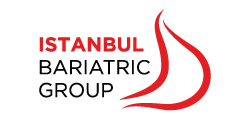FREQUENTLY ASKED QUESTIONS
Your surgeon will review your medical records and work with you to determine which weight reduction surgery is best for you and matches your lifestyle. It is best to visit our website for further details.
A person’s BMI must be 40 or greater in order to be considered for surgery (around 100 pounds more than the average weight for men, and 80 pounds extra for women). If their BMI is between 35 and 39.9, but they have a major medical condition associated with obesity, such as type 2 diabetes, coronary artery disease, sleep apnea, acid reflux, or hypertension, they may also be eligible. Individuals with a BMI of 30-35 may now qualify, but only if they choose lap band surgery. They must also be willing to attend follow-up consultations, take vitamins, and make appropriate lifestyle modifications.
Body Mass Index (BMI) is a metric used to estimate a person’s body fat in proportion to their height and weight. This computation, which is based on a person’s weight and height, may be used to assess whether or not a person is of a healthy weight.
The body mass index (B.M.I.) is a numerical statistic that takes an individual’s height and weight into consideration. This estimate is particularly important when comparing the weights of people of various sizes
While your procedure is an important component of the process of healing your health, it is not sufficient on its own. You will soon have a strong weapon to aid in the battle against this illness, but you must know how to use it correctly. This is where the IBG team comes into play. Your doctors will assist you in understanding how your food choices and behavioral adjustments have created problems in the past, but may now be utilized to help you succeed.
Surgery is typically a safe choice if you are between the ages of 16 and 70. If you are above the age of 18 and are interested in surgical and/or weight reduction treatments, please call our office to schedule a consultation with one of our medical specialists to explore your options.
Obesity-related disorders such as diabetes, sleep apnea, hypertension, high cholesterol, acid reflux, depression, stress incontinence, muscle/joint discomfort, and osteoarthritis may all be effectively treated with surgery. Furthermore, decreasing weight may lead to improved pregnancy outcomes, higher fertility, and a lower risk of contracting cancer. Furthermore, bariatric surgery boosts one’s overall life expectancy.
It is essential to follow a liquid protein diet for two weeks before to your surgery in order to prevent difficulties during the procedure. This pre-operative liquid diet shrinks the liver, making the stomach surgery operation simpler.
The hazards connected with bariatric surgery are comparable to those associated with other abdominal surgeries. Bleeding, infection, hernias, and wound-related complications are all low-risk. A gastric bypass or sleeve gastrectomy has a mortality rate of less than 1%. There is a 1% chance of leak after a gastric bypass and a 2% risk after a sleeve procedure. Other concerns include ulcers or difficulties swallowing, as well as the production of blood clots in the legs or pelvis, which might lead to a pulmonary embolism. There is also the possibility of not losing weight, which is usually the consequence of noncompliance with the nutrition plan
If you smoke, you increase your chances of having problems during surgery, even death. Tobacco smoking increases your risks of developing a blood clot in your legs (deep venous thrombosis), which may lead to a pulmonary embolus, as well as poor tissue and wound healing, which can lead to a leak and infection. Additionally, smoking might result in anesthetic issues such as abrupt respiratory distress syndrome and pneumonia. Cigarette smoking will also cause gastric ulcers and erosions in the new stomach pouch. Smoking must be stopped at least 6 weeks before surgery or the operation may be postponed. Furthermore, it is critical to maintain a smoke-free lifestyle after surgery.
Patients who are having surgery are not required to use a bowel preparation.
Laxatives are not required during weight reduction surgery since a liquid diet is given prior to the procedure.
Metabolic syndrome is a phrase used to describe a collection of factors that are linked to health problems such as heart disease and diabetes. High blood sugar levels, raised triglyceride concentrations, low HDL (good cholesterol molecules), high blood pressure, and an increase in waist circumference are all symptoms of metabolic syndrome.
Maintaining a healthy weight reduction and eating plan may aid in the treatment of metabolic syndrome.
Gastric bypass and sleeve gastrectomy are the two types of metabolic surgery. These treatments have an impact on hormones and help to fight metabolic syndrome (which includes type II diabetes, insulin resistance and cholesterol abnormalities). Even before the patient starts to lose significant weight, the operation may have a good influence on their health. Furthermore, for diabetics, metabolic surgery may be utilized to enhance insulin and glucose function.
